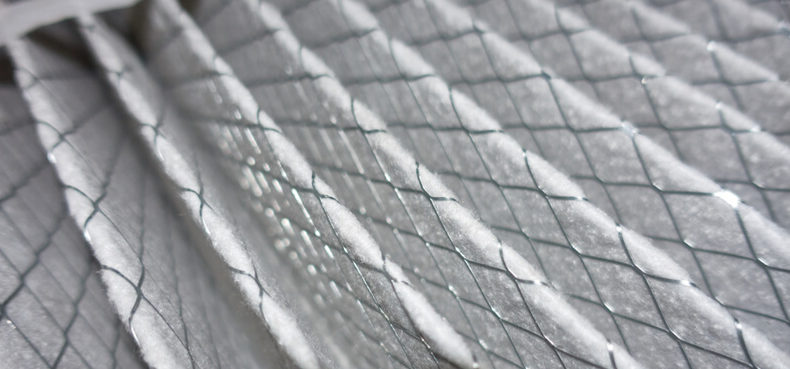Your home’s air filters: Why are they so dirty?

Air filters play a vitally important role in your air conditioner, so it’s important to pay close attention to them. While there are guidelines regarding what type of filters to purchase and the frequency with which they need to be changed, these factors can change based on your particular environment.
Your home’s air filters can impact the quality of air in your household – and put a strain on your air conditioner. In hot areas such as Texas, residents understand the importance of an energy efficient air conditioner! Ensuring your air filters are functioning their best can help with your energy usage and electric bills, too. Ready to learn more? Here’s what you need to know.
How can your air filters affect your home?
According to the U.S. Environmental Protection Agency (EPA), the air pollution inside of your home could be anywhere from 2 to 5 times higher than the air pollution found outdoors.
“The job of an AC filter is to remove debris from the air before it enters your system,” says Marla Mock, VP of Operations at Aire Serv.” And Mock warns that there are many things that can cause your air filter to become dirty, including pet dander, air pollution, and dirt near the vents.
“When things clog up, the unit won’t cool as well, and in fact, works much harder and uses more energy, which causes a substantial rise in the electric bill,” explains Mock.
And a dirty filter can cause other problems for your air conditioner as well. “Dirt in the filter can shorten the life of your air conditioner, because dirt pulls into the inner workings of the unit,” Mock says. “Strain on the fan motor from the increased effort will take its toll, as well.”
While some recommendations are to change your air filters on a quarterly basis, it’s extremely important to make sure your air filters don’t allow dirt to build up. For this reason, Mock recommends replacing air filters on a monthly basis. This is even more important if you have pets and smokers in the house, or if you suffer from allergies.
The type of air filter will have an impact
In addition to knowing how often to change filters for maximum efficiency, the type of filter used can also affect your air conditioner’s performance. “Filters are rated on their ability to trap particles, and different types of filters can have different MERV-ratings,” said Mock.
According to the EPA, the MERV – or the minimum efficiency reporting value – rating is determined by the filter’s ability to trap particles between 0.3 and 10 microns. Using a testing system developed by the American Society of Heating, Refrigerating, and Air Conditioning Engineers, MERV ratings range from 1 to 16 – and the higher the number, the better as a general rule. But this isn’t always the case.
“Before you go out and buy the best MERV 16 filter you can find, consider that upgrading to the highest efficiency air filter possible presents its own problems,” Mock warns. She lists 3 of those problems below:
- Poor fit – “Most units have slots that accommodate one-inch thick air filters.” However, since high-MERV filters tend to be thicker, Mock says it is impossible to use them unless you have a comparable slot. “If it’s not a good fit, the dirt and debris can make their way around the filter and decrease the filter’s effectiveness.” And those particles will ultimately end up circulating into the air.
- Decreased airflow – “Filters with extra tight weaves reduce airflow, which can cause an increase to your utility bills and can also shorten the lifespan of your unit,” explains Mock.
- Increased cost with little air quality difference – Something else to consider: “High-MERV filters cost significantly more than low or medium efficiency options,” Mock says. “They may be able to trap minuscule particles, but unless you have respiratory problems, you probably won’t notice a difference between MERV 7 and MERV 14 filtration.”
So, when you’re choosing an air filter Mock says you need to make sure that it’s a good fit. “If you pick an air filter with a low MERV rating, it’s unlikely to filter out allergens and pet dander,” Mock explained. And yet, it’s not as easy as just picking out an air filter with a very high MERV rating. “If you pick an air filter with a very high MERV rating, the very small filter holes may put pressure on your HVAC system, causing long-term damage.”
So, what does Mock recommend? “Choosing a mid-range filter may be your best option, as these filters can trap particles as small as 3 microns—such as hair spray, pudding mix, dusting aids, and mold spores,” she explains.
Terri Williams is a freelance journalist with bylines at The Economist, USA Today, Yahoo, the Houston Chronicle, and U.S. News & World Report. Connect with her on Twitter or LinkedIn.
[Lost_in_the_Midwest]/Shutterstock
